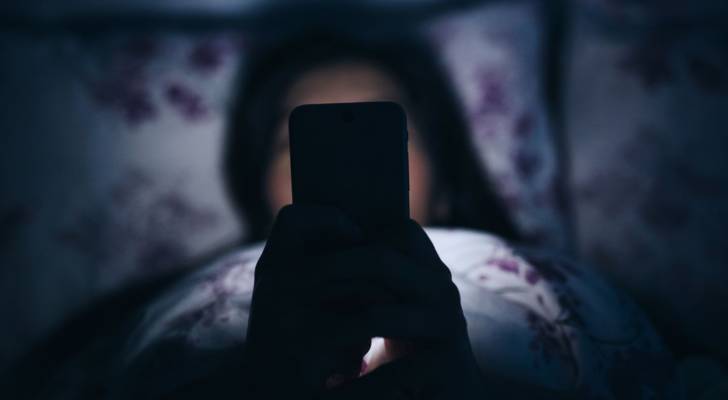
A new study suggests that people who spend more time looking at screens in bed are more likely to report sleep disturbances, including insomnia.
The research, based on survey responses from over 45,000 Norwegian students aged 18-28, found that each additional hour of screen time in bed was associated with a 63 percent higher risk of insomnia and an average of 24 minutes less sleep per night.
However, researchers emphasized that the study established a correlation rather than direct causation. “This study cannot determine causality — for example, whether screen use causes insomnia or if students with insomnia use screens more,” said Dr. Gunnhild Johnsen Hjetland of the Norwegian Institute of Public Health, the study’s lead author.
The findings, published in Frontiers, indicated that the type of screen activity—whether social media, streaming, browsing, or gaming—was less relevant than overall screen exposure. “We found no significant differences between social media and other screen activities, suggesting that screen use itself is the key factor in sleep disruption,” Dr. Hjetland explained.
– How the study measured sleep issues –
Participants were asked about their digital media use after going to bed, including how often they engaged in screen activities and for how long. Researchers then assessed their sleep quality based on self-reported difficulties such as trouble falling asleep, waking up frequently, or experiencing daytime fatigue at least three times a week for three months—criteria used to identify insomnia.
While bedtime screen use was consistently linked to reported sleep problems, researchers acknowledged limitations in the study, including potential biases in self-reported data and the need for broader, long-term research.
– Tips for better sleep –
Insomnia affects millions of people worldwide, and while the impact of screen time on sleep remains debated, experts generally recommend reducing device use before bed.
Health organizations suggest creating a bedtime routine, avoiding screens before sleep, and opting for relaxing activities like reading or breathing exercises. They also advise maintaining consistent sleep schedules, avoiding caffeine and alcohol before bed, and minimizing nighttime distractions, such as phone notifications.









